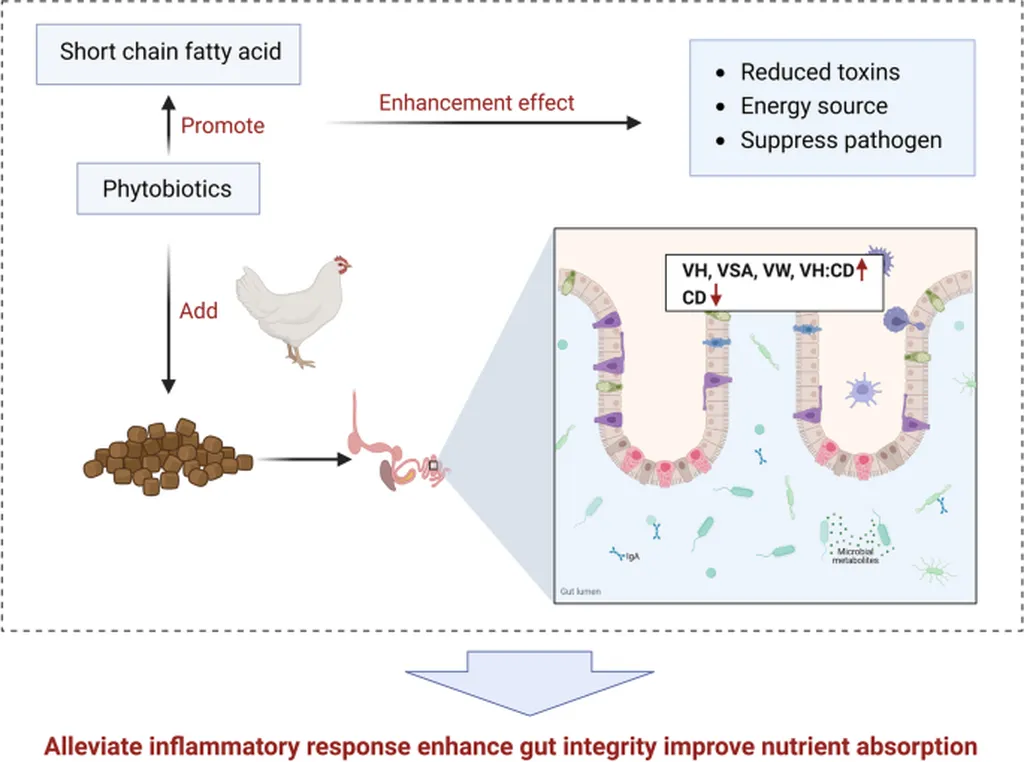In the ever-evolving world of poultry farming, researchers are continually seeking innovative ways to enhance the productivity and health of breeder hens, particularly as they age. A recent study published in the journal *Animal Nutrition* (translated to English as “Animal Nutrition”) has shed light on a promising combination of dietary supplements that could revolutionize the industry. Led by Yuchen Liu from the National Engineering Laboratory for Animal Breeding at China Agricultural University, the research explores the synergistic effects of active dry yeast (ADY) and Bacillus subtilis (BS) on aged breeder hens.
The study, which involved 336 Hy-line brown layer hens aged 55 weeks, investigated the impact of dietary supplementation with ADY alone or in combination with BS on various physiological parameters, including laying performance, egg quality, blood indexes, reproductive traits, ileum microbiome, metabolome, and uterine gene expression. The findings are nothing short of compelling.
“Our research demonstrated that the combination of ADY and BS significantly improved egg production and reduced feed conversion ratio compared to the control group,” said Yuchen Liu, the lead author of the study. This means that hens fed the ADY-BS combination not only laid more eggs but also required less feed to do so, a critical factor for farmers looking to optimize their operations.
The benefits didn’t stop there. The ADY-BS combination also enhanced eggshell-breaking strength and boosted the hens’ immune function, as evidenced by increased lysozyme levels and antibody titers against avian influenza H5 and H9 subtypes. “This combination appears to create a more robust gut environment, which in turn supports better overall health and productivity,” Liu explained.
The study also delved into the microbiome and metabolome of the hens’ ileum, revealing significant modifications. The ADY-BS combination enriched Lactobacillus, a beneficial bacterium known for its positive effects on gut health. This enrichment was negatively correlated with certain differential metabolites, which were in turn negatively associated with the expression of genes related to calcium ion transport and immune pathways in the uterus.
So, what does this mean for the future of poultry farming? The findings suggest that strategic dietary supplementation can have a profound impact on the health and productivity of aged breeder hens. As the industry continues to seek sustainable and efficient ways to meet growing demand, such innovations could play a pivotal role.
“Our results indicate that the ADY-BS combination could be a game-changer for poultry farmers,” Liu said. “By improving laying performance, egg quality, and immune function, this supplement could help farmers enhance their productivity and profitability.”
As the research community continues to explore the potential of multiomics approaches, this study serves as a testament to the power of integrating different types of data to gain a holistic understanding of complex biological systems. With further research, the ADY-BS combination could become a standard practice in poultry farming, shaping the future of the industry and contributing to global food security.
In the meantime, the findings published in *Animal Nutrition* offer a promising glimpse into the future of poultry farming, where innovative dietary supplements could unlock new levels of productivity and sustainability. As the industry continues to evolve, such breakthroughs will be crucial in meeting the challenges and opportunities that lie ahead.

